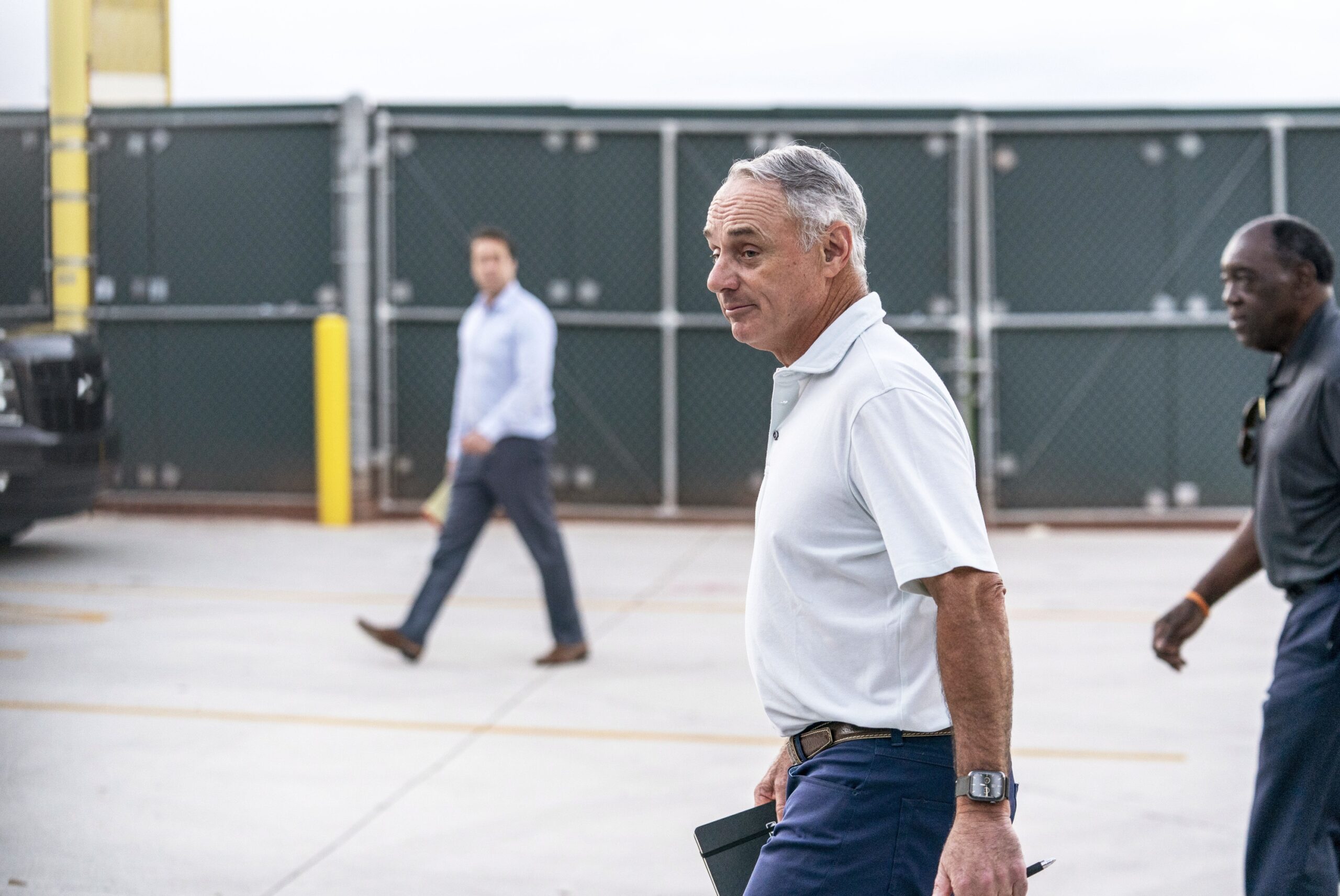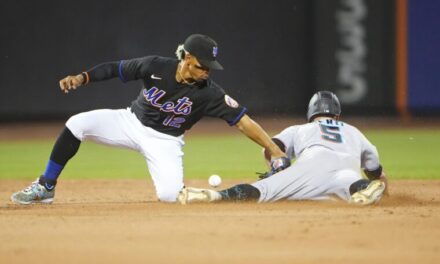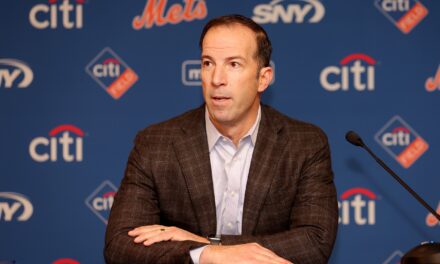Major League Baseball Commissioner Rob Manfred spoke to the media during the All-Star break, and a key topic was one that people may expect, the new rules implemented for the 2023 season.
It is important to note that prior to the 2022 season (before the new Collective Bargaining Agreement was signed), MLB formed a competition committee to oversee the on-field product. This committee was tasked with, among other things, making rule recommendations to MLB leadership, and discussing those recommendations with the MLB Players’ Association, though MLB had the discretion to implement rule changes without union approval. The MLBPA was not in favor of the pitch clock and shift restrictions (they supported larger bases).
Now that more than half of a season is in the books, Manfred feels that the rule changes are going well. He is quoted in The Athletic as saying:
“(I have) been routinely stopped by fans talking about the rule changes in a very positive way.” He thanked players and umpires for their cooperation in implementing the new rules.

Greg Lovett-USA TODAY NETWORK
However, not unexpectedly, the pitch clock is a source of concern for the players, who are seeking modifications to the rule, or its elimination, for the postseason. Their rationale goes as follows, as stated by super agent Scott Boras (from the cited article):
“In the postseason, there clearly should be no pitch clock,” Boras said. “It’s the moment, the big moment. They need to reflect, they need more time, it’s a different scenario than the regular season, and we do not want their performances rushed.
“We understand why they would probably (use a clock) during the season, for the efficiency of the game and what they believe to be a fan-positive move for the shortening of games — understood. But in the postseason, we don’t want these men in a completely different emotional environment, where the settings mean so much more, where all their work and effort, all their goals are achieved.”
Manfred is open to the possibility of a change to the pitch clock rule, but does not seem to be all-in. From the article:
Manfred said he understands “it’s a possibility” the clock negatively impacts a postseason game, but added that “in general (he thinks) you ought to play the postseason the way you play the regular season.” He added the league is “comfortable with the way the clock and the violations … have been managed.
Reaction
MLB is in a tough spot with this one. On the one hand, it’s not common to change the rules of the game (in any sport) for the postseason, except in cases where ties are allowed during the regular season and have to be resolved in the playoffs. It would be odd to see the defensive and offensive holding rules changed for the NFL playoffs, or a different way for icing to be enforced during the NHL postseason. It makes some sense to use the same rules every time the game is being played.
On the other hand, fans pay to watch the players play. It would be a bad look for baseball to have batters called out on clock violations (or awarded first base on a pitcher’s violation with a three-ball count) in tense situations when one of the game’s best pitchers is facing a team’s best hitter.
Maybe the answer is somewhere in the middle of Boras’ claim that there should be no clock and Manfred’s comment about playing by the same rules all the time. Perhaps a clock can be used, with five seconds added to each scenario, so pitchers have 20 seconds when no runners are on base and 25 seconds with runners on base. Also, for the playoffs, MLB may consider allowing hitters two timeouts (of shorter duration) during an at-bat, so they can collect themselves and be ready for the moment.
Manfred is continuing to meet with players and will meet with union head, Tony Clark, about the pitch clock and its use in the postseason. Whatever they decide, let’s hope it’s done collaboratively rather than unilaterally, as one thing this game does not need more negative rhetoric, especially when it is enjoying a strong season at the turnstiles.
















